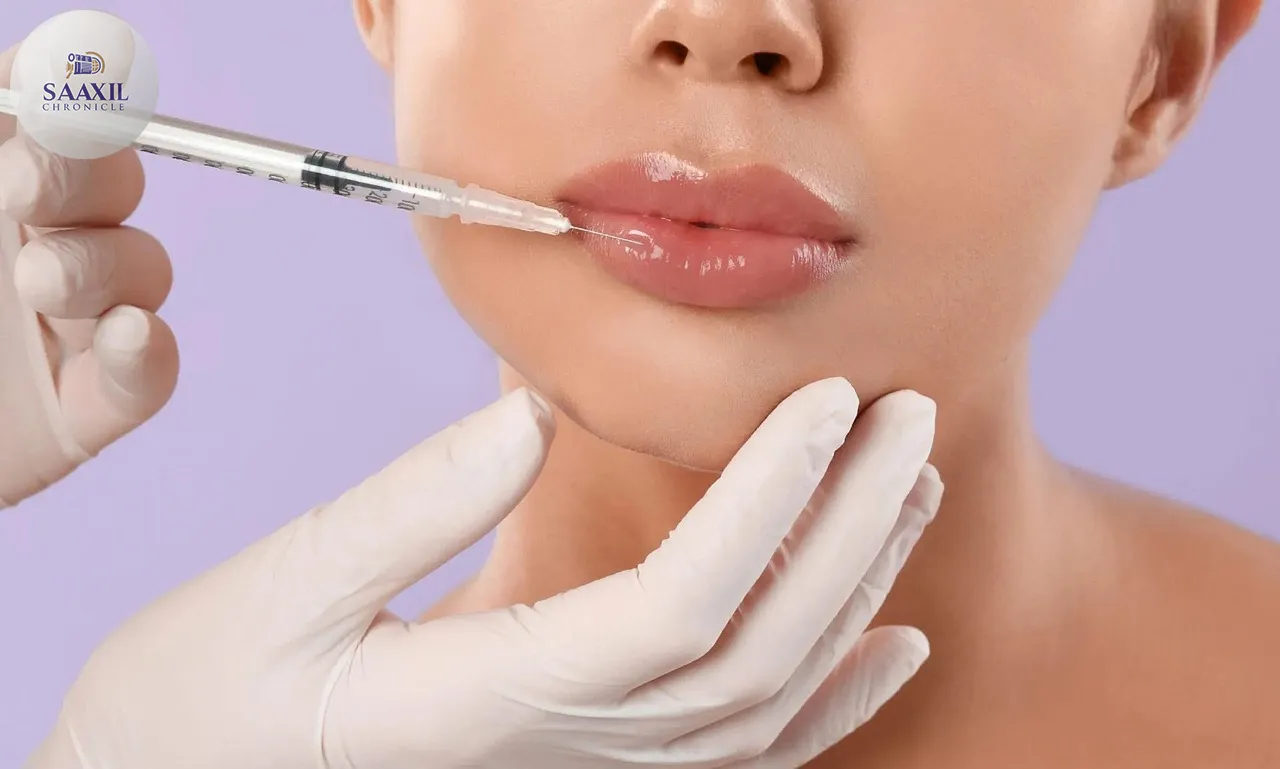Concerns are escalating over the alarming rise of unqualified individuals administering cosmetic filler injections in public toilets across the UK. The Chartered Trading Standards Institute (CTSI) has uncovered evidence pointing to a troubling trend of untrained and unlicensed practitioners carrying out these procedures in non-clinical settings. This development has sparked urgent calls for stricter regulations and increased public awareness about the potential health risks associated with such practices.
Alarming Trend: Fillers in Unconventional Settings
The CTSI’s recent findings have highlighted a disturbing pattern where individuals, lacking proper training and licensing, are offering cosmetic filler injections in public restrooms. This phenomenon, primarily observed in urban environments, poses significant health risks to unsuspecting clients. Public toilets, far from the sterile conditions required for medical procedures, are unsuitable for injections, raising the risk of infections and other complications.

Experts warn that the appeal of lower costs and convenience should not overshadow the dangers of receiving treatments from unqualified practitioners. “The lack of hygiene and expertise in these environments is a recipe for disaster,” says Dr. Jane Thompson, a dermatologist based in London. “Patients are unwittingly exposing themselves to serious health risks, including infections and nerve damage.”
The Role of Social Media in Promoting Unsafe Practices
Social media platforms have played a pivotal role in the proliferation of these unsafe cosmetic procedures. Many unlicensed practitioners utilise platforms like Instagram and TikTok to advertise their services, often showcasing dramatic before-and-after transformations to lure clients. The allure of quick and affordable beauty enhancements can be tempting, particularly for younger individuals seeking instant results.
However, the reality behind these glossy posts is often far less glamorous. The CTSI has noted that many victims of botched procedures report experiencing severe pain, swelling, and, in some cases, long-term disfigurement. “Social media can be a double-edged sword,” explains Professor Mark Harris, a social media behaviour analyst. “While it offers a platform for marketing, it also facilitates the spread of misinformation and unsafe practices.”
Regulatory Gaps and the Need for Stricter Controls
The current regulatory framework surrounding cosmetic procedures in the UK has significant gaps, particularly concerning non-surgical treatments like filler injections. Unlike surgical procedures, which require medical qualifications, anyone can legally perform non-surgical cosmetic treatments, leading to a surge in unregulated practices.
The CTSI is advocating for more stringent regulations and mandatory training for all individuals offering cosmetic procedures. “We need to close these loopholes to protect consumers,” emphasises Louise Baxter, head of the CTSI’s consumer protection team. “Implementing mandatory licensing and training requirements will ensure that practitioners meet essential safety standards.”
Public Awareness and Education: Key to Prevention
Increasing public awareness about the risks associated with unregulated cosmetic procedures is crucial in curbing this dangerous trend. Educational campaigns aimed at informing potential clients about the importance of choosing qualified practitioners could significantly reduce the number of individuals falling prey to these unsafe practices.
Healthcare professionals and consumer protection agencies are urging individuals to conduct thorough research before undergoing any cosmetic procedure. “It’s essential to verify the credentials of your practitioner and ensure the procedure is conducted in a reputable clinic,” advises Dr. Emily Carter, a plastic surgeon with over 20 years of experience.
Moving Forward: Ensuring Safety in Cosmetic Procedures
The revelations by the CTSI underscore the urgent need for comprehensive measures to address the growing issue of unqualified individuals administering cosmetic procedures. Stricter regulations, combined with public education, are essential steps towards safeguarding public health and ensuring that cosmetic enhancements do not come at the cost of safety.
As the government considers potential regulatory reforms, individuals are encouraged to prioritise their health and safety over convenience and cost. The allure of quick beauty fixes should never outweigh the importance of receiving treatments from qualified professionals in safe, sterile environments.





